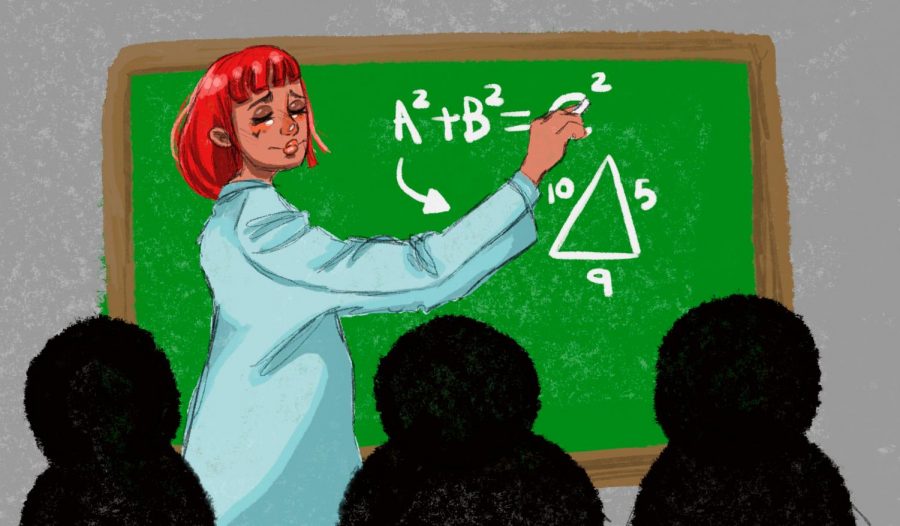WSU receives grant to diversify math
Program will fund candidates’ education for two years, connect them with mentors
The project is funded through the Robert Noyce Teacher Scholarship Program.
September 9, 2021
WSU received a $1.12 million grant from the National Science Foundation to foster future mathematics teachers from marginalized communities.
Washington has faced a shortage of secondary school mathematics teachers for years. Tariq Akmal, grant principal investigator and WSU College of Education department chair, said 47 percent of Washington students are not white, but 82 percent of teachers in the state are white.
“There’s definitely an issue with not having role models in the classrooms,” said Kristin Lesseig, co-investigator and WSU Vancouver associate professor of mathematics education. “But also on a deeper level, as we all know, that diversity in backgrounds and experiences and ways of thinking just enriches every educational environment.”
Washington is likely to become a state with a majority of minority students anywhere from 2030 to 2050, Akmal said, so it is important for children of color to have teachers like them.
There is always a shortage of qualified secondary mathematics teachers, Lesseig said.
The project aims to recruit 24 diverse mathematics candidates over the course of four years, Akmal said. The students in the program will receive a scholarship that covers tuition and fees for the last two years of college.
They will also receive professional development opportunities and be connected with virtual mentors who are teachers in Washington, he said.
“These [mentors] are people who know how to teach math in ways that really engage kids and have … the strong social justice bent that we’re looking for,” Akmal said.
The program is committed to selecting diverse mentors. Lesseig said the program is recruiting mentors who are committed to teaching math for social justice and incorporating culturally-sustaining practices in math classrooms.
The project is funded through the Robert Noyce Teacher Scholarship Program. Akmal said prospective candidates for the program include women, first-generation college students, students of color and non-native English speakers.
But the program goes beyond recruiting students who come from diverse backgrounds, he said. They are looking for students who want to humanize math and talk about how math can be used to solve real-world problems.
William Hall, co-investigator and WSU College of Arts and Sciences assistant professor of mathematics education, said he was part of an earlier version of the Noyce scholars program that recruited mathematics teachers.
Hall said the program fundamentally changed his path and caused him to meet people he would have never met before. He was in a doctorate program at the time and had not taught high school before, but he committed to teaching mathematics in Raleigh, North Carolina, for three years.
“I have a closet full of Sanderson High football shirts and I’m not getting rid of them,” he said. “I loved that job. It was very hard.”
The program aims to recruit students who may not think teaching is for them, Hall said.
Choosing candidates for the program will involve listening to their stories, Lesseig said. She said they will be focusing less on test scores and more on passion, desire, commitment and resilience.
She said the program is looking for candidates who are willing to confront what is happening in math education and then do better.









